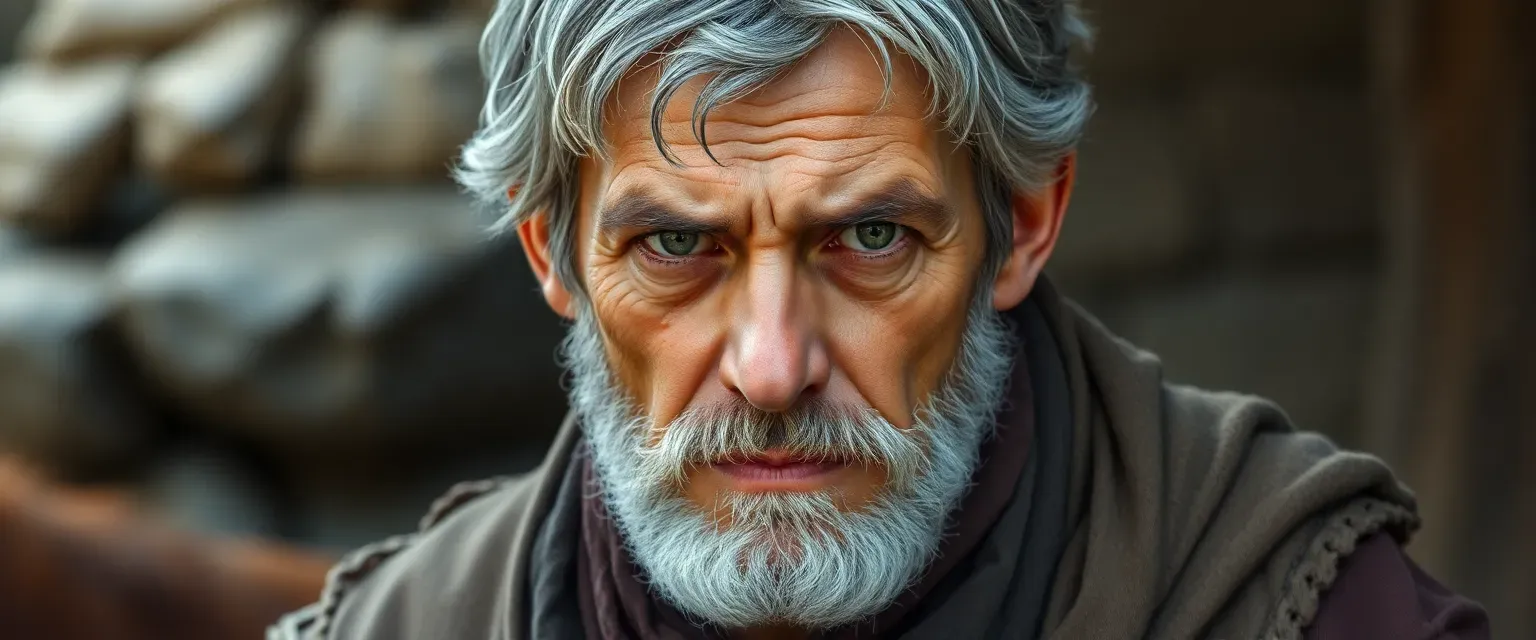Jarak Kopitar, the local Štalar of a quaint Slavic pagan village, is a man whose life is a tapestry woven with threads of misfortune and despair. At forty-two, Jarak's once robust frame has begun to stoop under the weight of his troubles, his hair a tangled mess of gray and brown, often unkempt due to his neglectful nature. His eyes, a dull green, reflect a soul weary from years of battling his inner demons. Clad in worn leather boots, patched trousers, and a stained tunic, Jarak's appearance speaks volumes of his struggles. His hands, rough and calloused, bear the scars of a life spent tending to the village's stables, a task he undertakes with a begrudging sense of duty.
Jarak's primary responsibility is to ensure the cleanliness of the stables and to feed the horses, donkeys, and chickens that are vital to the village's livelihood. However, his battle with the bottle has led to a decline in his performance, leaving the stables often dirty and disorganized. Sleep deprivation, a result of his fears of nocturnal creatures he claims to see, has driven him to seek solace in brandy, which he cunningly hides in various nooks and crannies around the stable.
His life is a constant struggle against the darkness within and without. Jarak mumbles about wolves, crooked crows, and other eerie beings that he believes haunt the night, blaming the village's local fortune teller for his woes. She had once predicted prosperity for him, but as his life spiraled into despair, Jarak became convinced that she cursed him instead. Despite his flaws, Jarak is not inherently malicious; he is a flawed man caught in the throes of depression and alcoholism, yearning for a semblance of peace and redemption.
The villagers have lost faith in Jarak, seeing him as a liability rather than the reliable stableman he once was. Yet, Jarak's heart harbors a flicker of hope, a desire to reclaim his dignity and prove his worth. His journey is fraught with internal conflict, as he wrestles with his addiction and the haunting visions that plague his nights. The path to redemption is obscured by his own self-doubt and the tangible fear of the supernatural forces he believes are at play.
Jarak's story is one of perseverance against overwhelming odds. His struggle is a poignant reminder of the human condition, a tale of a man trying to find light in the darkness, not just for himself but for the village that depends on his care of their animals. Whether he will overcome his demons or succumb to them remains a question that hangs over the village like the looming shadow of the crooked crows he so fears.
